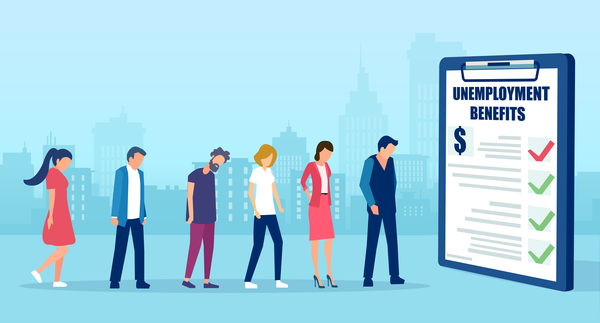
The number of unemployed 20s after the COVID-19 pandemic has reached an all-time high since the IMF crisis, and the Korean government has expanded unemployment benefits to ease the impact of the employment crisis. Unemployment benefits are to help overcome living instability caused by unemployment, and to support opportunities for reemployment by paying a small amount during the period when employed workers are unemployed. However, the current system is not properly implemented, contrary to its original purpose. To prevent this, the eligibility for unemployment benefits should be stricter.
First, the criterion to prevent increasing cases of unemployment benefit abuse is needed. Job seeking benefits, commonly called unemployment benefits, are paid by the Employment Insurance Fund (EIF) to support unemployed people's job seeking. It is currently possible to receive at least 60,120 won per day for four months if someone loses job unintentionally after working 180 days. However, it is illegal when one falsely reports the reason of job change in order to receive the benefits, or receive the benefits while hiding the fact that he or she has been employed, etc. According to the Ministry of Employment and Labor, the amount of the illegal payments detected from January to November 2020 was 22.271 billion won. In addition, the average amount per person during the same period was 960,000 won, which increased from 930,000 won in 2017. If people abusing the benefits are not properly screened, they can get paid even after being employed, and problems with fairness can occur. Second, there is a need for a standard to reduce indiscriminate payments. Job seeking benefits are currently available without any limit on the number of times, and if it is unchanged, it will be a big burden on the EIF. According to the JoongAng Ilbo, about 10,000 people have received job seeking benefits more than five times over the past five years, costing more than 47.8 billion won. This can be interpreted as repeated short-term job openings and unemployment over the past five years. However, last year, the EIF's burden has increased to about 11.85 trillion won, the highest level ever, since the COVID-19 pandemic. Lawmaker Yoon Joon-byeong pointed out that amid growing concerns over the depletion of the EIF, the burden has grown as indiscriminate repeated payment of the benefits without specific standards increases. In this situation, if unemployment benefits are not limited, the EIF can be depleted. Then, there can be a big problem when people need to receive it and there is no money in the fund to pay them.
Unemployment benefits began with a good purpose to support people who lost their jobs, but there have been a lot of illegal and unnecessary payments. As a result, EIF has had a heavy burden and could be led to the depletion. To prevent this problem, it is essential to strictly strengthen the eligibility for unemployment benefits. The unemployment benefits should be changed so that those who really need it may benefit.


